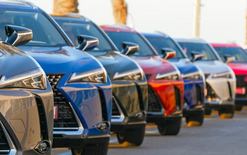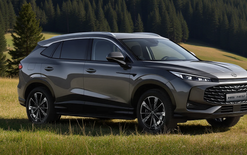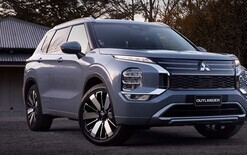BYD exceeds 3m sales

Chinese giant BYD retailed more than three million battery-powered cars in 2023, its most ever.
Even as sales surged, heavy competition and a sustained price war took a financial toll on many carmakers.
That said, BYD last year sold 1.6m battery electric vehicles (BEVs) and 1.4m hybrids for a year-on-year increase of 62 per cent.
All told, Chinese marques retailed around 9.4m BEVs and hybrids in 2023, up from 6.9m in 2022, according to the China Association of Automobile Manufacturers. It expects the total for 2024 to top 11.5m.
Chery, meanwhile, has announced its sales for 2023. It achieved 12 consecutive monthly increases for annual sales of 1.9m for a year-on-year growth of 52.6 per cent.
Annual exports of vehicles reached 937,148 units, representing a jump of 101.1 per cent to secure 21 consecutive years as China’s top exporter of passenger cars. As a result, the Chery Group’s global user base has exceeded 13m with 3.35m users located overseas.
Fastest growing global market
Already the world’s largest automotive market, China is now also its fastest growing and the country is racing ahead in the global EV transition.
China rules the supply chain for battery-powered cars – from the mining and processing of cobalt and other materials used in lithium-ion batteries to the deployment of robots on production lines. China’s EV makers and their suppliers employ about 1.5 million people.
A big reason for China’s early lead in EVs was the government’s heavy financial support for the industry’s development. After financial incentives for consumers expired as 2022 ended, manufacturers slashed sticker prices. Many, including BYD, introduced another round of cuts in 2023, intensifying the price war.
Last year’s price-cutting was started by Tesla, which has a factory in Shanghai. In January 2023, it lowered prices in China for the second time in three months and others followed.
As fast as China’s EV sales boom, companies are pouring money into factories and research, often fuelled by loans from state-owned banks and assistance from municipalities.
As worldwide competition for EVs has become more intense, political ramifications have heightened. Policymakers in the US have made it harder for foreign companies to become partners with American companies.
And in Europe, lawmakers are investigating China’s state subsidies. That’s a step that could lead to tariffs imposed by the European Union.





